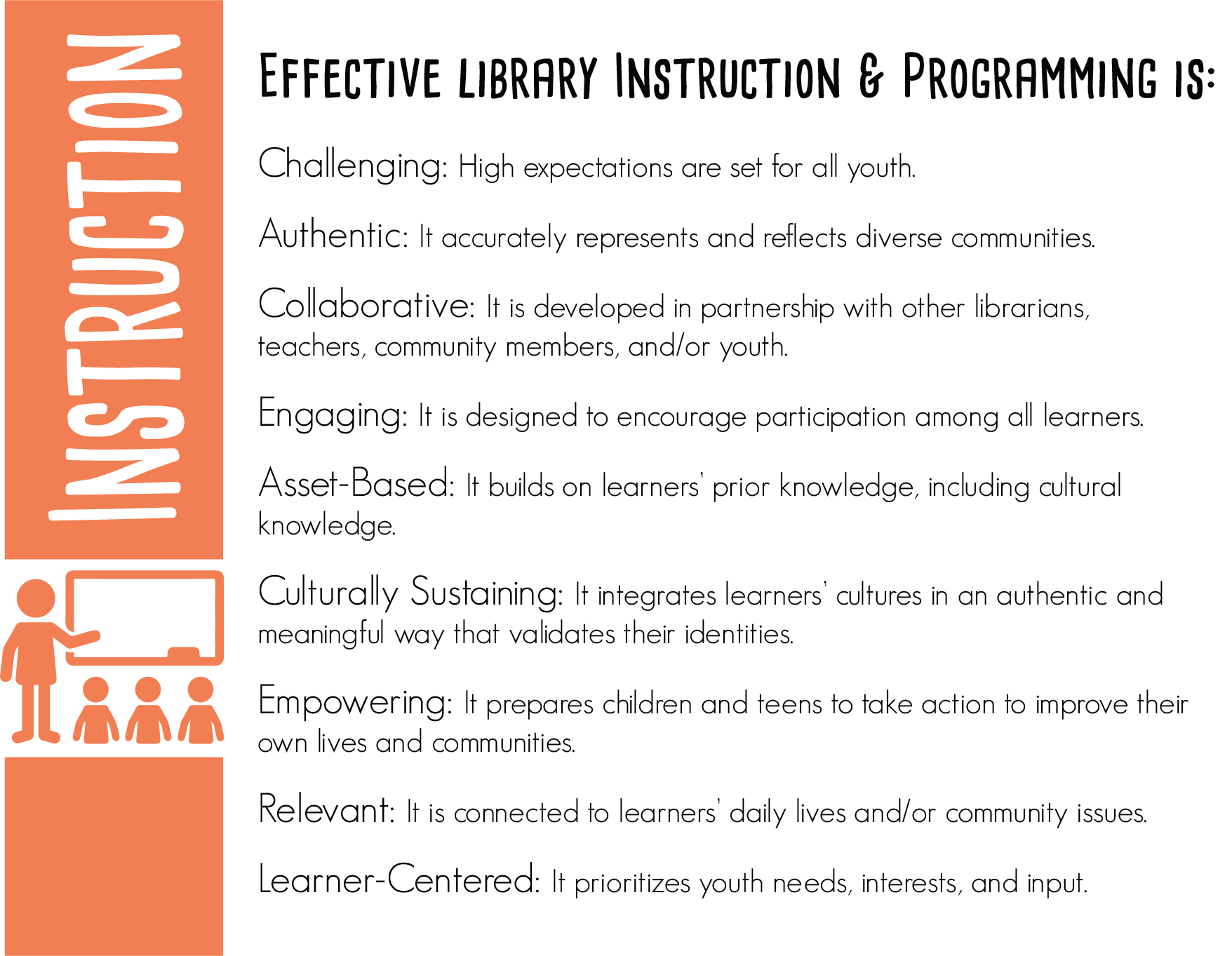Transforming School Libraries for BIYOC: Using a Racial Equity Lens to Improve Library Instruction.
Hey! We all know that school libraries are super important for a great education. They're the heart of the school library program, and good quality instruction can make a huge difference in how well students do in their lives.
So let's talk about how we can make school libraries even better for BIYOC (Black, Indigenous, and Youth of Color). We can start by looking at how library instruction can be improved by taking a racial equity lens, and then work together to come up with a plan to make those improvements. And once we've made those changes, we can see how they're working for BIYOC. Here are 5 things we should consider when we are making this shift:
Incorporate diverse perspectives: Library instruction should incorporate diverse perspectives that reflect the experiences and viewpoints of marginalized communities. This can include using materials created by authors from diverse backgrounds, including readings, videos, and other resources that explore issues related to race and equity.
Acknowledge historical inequities: Library instruction should acknowledge the historical and ongoing inequities that exist in our society and the role that libraries have played in perpetuating these inequities. This can involve creating space for conversations around institutional racism, white privilege, and other related topics.
Build trust with students: Library instruction should prioritize building trust with students from marginalized communities. This can involve creating a welcoming and inclusive environment, validating students' experiences and perspectives, and demonstrating a commitment to addressing issues of racial equity.
Evaluate and revise policies: Library instruction should evaluate and revise policies to ensure they promote racial equity. This can include examining policies related to collection development, cataloging, and access to resources, among other areas.
Engage with the community: Library instruction should engage with the community to better understand their needs and perspectives. This can involve partnering with local organizations and groups to develop programming and services that meet the needs of underserved communities.
It's also crucial to create library instruction that is culturally relevant and sustaining. Public librarians have a big role in making sure that kids feel engaged and included, rather than feeling left out. We can learn from libraries that are doing a great job at this, and use resources like the El día de los niños/El día de los libros initiative, YALSA's Teen Programming Guidelines and Teens First: Basic Learning Outcomes and the AASL Standards Framework for Learners is a great place to start.
There are lots of examples of great library programs out there, like the Woke Teens Forum at the Hartford Public Library and the Project LIT Community. By taking an equity lens and working together, we can help transform school libraries to be even better for all students.
Citations:
Alam. (2018, April 3). Teen programming guidelines. Young Adult Library Services Association (YALSA). Retrieved April 7, 2023, from https://www.ala.org/yalsa/teen-programming-guidelines
Hassell, S. H., & Hassell, S. H. (2018, March 1). Socializing to social justice: WTF-woke teen forum-at the Hartford Public Library. YALSA Blog. Retrieved April 7, 2023, from https://yalsa.ala.org/blog/2018/03/01/socializing-to-social-justice-wtf-woke-teen-forum-at-the-hartford-public-library/
Jones, S., & Haynes, C. (2021). Racial Equity in Library Instruction: An Analysis of Current Practices and Recommendations for Future Directions. Journal of Library Administration, 61(5), 548-562. DOI: 10.1080/01930826.2021.1921178
Lschulte. (2022, December 10). El Día de los Niños/El Día de los libros (children's day/book day). Association for Library Service to Children (ALSC). Retrieved April 7, 2023, from https://www.ala.org/alsc/initiatives/dia
Project Lit. End Book Deserts. (n.d.). Retrieved April 7, 2023, from https://www.endbookdeserts.com/project-lit#:~:text=Founded%20by%20high%20school%20teacher,in%20our%20schools%20and%20communities

